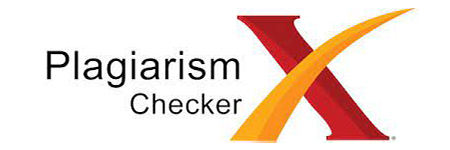Internet of Things (IoT): Masa Depan Kehidupan Serba Terkoneksi
DOI:
https://doi.org/10.70716/pjmr.v1i5.294Keywords:
Internet of Things, Digital Technology, Connectivity, Cybersecurity, Smart CityAbstract
The Internet of Things (IoT) is one of the most significant milestones in modern technological development, enabling physical devices to connect to the internet and communicate with each other automatically. The emergence of IoT introduces a new paradigm in everyday life, from smart homes and smart cities to integrated transportation systems and digital healthcare services. This integration not only enhances convenience but also improves efficiency in terms of energy, time, and cost. In the industrial sector, IoT is a key driver of Industry 4.0, where automation and real-time data analysis enhance productivity and product quality. In healthcare, IoT applications allow remote patient monitoring through wearable devices connected to medical systems, supporting faster and more effective healthcare services. Meanwhile, in agriculture, IoT contributes to precision farming by monitoring soil moisture, temperature, and nutrient requirements, ultimately increasing crop yields in a sustainable manner. Nevertheless, the development of IoT also presents serious challenges, particularly regarding cybersecurity, data privacy, and the readiness of network infrastructure across different regions. Without proper regulations and clear security standards, IoT utilization may lead to significant risks. Therefore, collaboration among governments, industries, and academia is necessary to design sustainable, secure, and inclusive IoT development strategies. With the right approach, IoT has the potential to become one of the main pillars in building a digital ecosystem that supports a fully connected life in the future.
Downloads
References
European Union Agency for Cybersecurity (ENISA). (2021). Cybersecurity for IoT. ENISA. https://www.enisa.europa.eu
IDC. (2020). Worldwide Global DataSphere IoT Devices and Data Forecast, 2019–2023. International Data Corporation. https://www.idc.com
Islam, S. M. R., Kwak, D., Kabir, M. H., Hossain, M., & Kwak, K. S. (2015). The Internet of Things for health care: A comprehensive survey. IEEE Access, 3, 678–708. https://doi.org/10.1109/ACCESS.2015.2437951
Lee, J., Bagheri, B., & Kao, H. A. (2015). A cyber-physical systems architecture for industry 4.0-based manufacturing systems. Manufacturing Letters, 3, 18–23. https://doi.org/10.1016/j.mfglet.2014.12.001
Creswell, J. W., & Poth, C. N. (2018). Qualitative inquiry and research design: Choosing among five approaches (4th ed.). SAGE Publications.
International Telecommunication Union. (2021). Measuring digital development: Facts and figures 2021. ITU Publications.
Patton, M. Q. (2015). Qualitative research & evaluation methods (4th ed.). SAGE Publications.
Snyder, H. (2019). Literature review as a research methodology: An overview and guidelines. Journal of Business Research, 104, 333–339. https://doi.org/10.1016/j.jbusres.2019.07.039
Vaismoradi, M., & Snelgrove, S. (2019). Theme in qualitative content analysis and thematic analysis. Forum: Qualitative Social Research, 20(3). https://doi.org/10.17169/fqs-20.3.3376
Yin, R. K. (2018). Case study research and applications: Design and methods (6th ed.). SAGE Publications.
Al-Fuqaha, A., Guizani, M., Mohammadi, M., Aledhari, M., & Ayyash, M. (2015). Internet of Things: A survey on enabling technologies, protocols, and applications. IEEE Communications Surveys & Tutorials, 17(4), 2347–2376. https://doi.org/10.1109/COMST.2015.2444095
Ashton, K. (2009). That ‘Internet of Things’ thing. RFID Journal, 22(7), 97–114.
Dixit, S., Fallah, S., Montanaro, U., Dianati, M., Stevens, A., Mccullough, F., & Mouzakitis, A. (2019). Autonomous vehicles: Disengagements, accidents and reaction times. PLOS ONE, 14(12), e0227219. https://doi.org/10.1371/journal.pone.0227219
Islam, S. M. R., Kwak, D., Kabir, M. H., Hossain, M., & Kwak, K. S. (2015). The Internet of Things for health care: A comprehensive survey. IEEE Access, 3, 678–708. https://doi.org/10.1109/ACCESS.2015.2437951
Weber, R. H., & Studer, E. (2016). Cybersecurity in the Internet of Things: Legal aspects. Computer Law & Security Review, 32(5), 715–728. https://doi.org/10.1016/j.clsr.2016.07.002
Wolfert, S., Ge, L., Verdouw, C., & Bogaardt, M.-J. (2017). Big data in smart farming – A review. Agricultural Systems, 153, 69–80. https://doi.org/10.1016/j.agsy.2017.01.023
Downloads
Published
How to Cite
Issue
Section
License
Copyright (c) 2025 Nevy Gautama, Yura Yunita, Ajrin Hidayat

This work is licensed under a Creative Commons Attribution-ShareAlike 4.0 International License.











